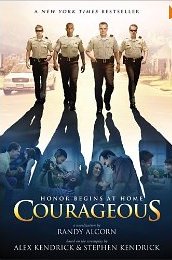Randy Alcorn: Message in Christian Fiction
 I was pleased to stumble across an article by Randy Alcorn in World Magazine a few weeks ago. It dovetails perfectly with my article about why I decided to marry the word meaningful with the word suspense for my author’s tagline.
I was pleased to stumble across an article by Randy Alcorn in World Magazine a few weeks ago. It dovetails perfectly with my article about why I decided to marry the word meaningful with the word suspense for my author’s tagline.
In summary, the thrust of my article was about why I believe message is important in Christian fiction. I listed several reasons why I strongly believe this way, based on my understanding of Scripture.
Many of my fans agree with me. At least one reader took me to task and told me to “lighten up”—that no, not every Christian novel needs to be message driven.
Well, no, that’s not what I said. What did I say?
Does that mean Christian writers can never write only a fun, entertaining story once in a while? No. But if all we write is entertainment, what eternal value is there?
So what does Randy Alcorn say about message? Is writing a message-driven novel the unpardonable sin as a Christian novelist (as some would have us believe)?
Barbara Kingsolver (The Poisonwood Bible). Dan Brown. Stephen King. These are all top-selling secular authors. So even secular authors like Stephen King get on their soapboxes on occasion, huh? Last I heard, King knew a thing or two about writing novels.
So if he can peach a bit—and I doubt that hurts his sales any—why can’t I? Like I said in my article on message, “If anyone has an important message to deliver to the world, it should be Christian writers.”
Alcorn later adds,
Amen and amen. Thank you, Randy Alcorn, for conveying your thoughts about message in Christian fiction. I couldn’t agree more.
By the way, Randy’s novelization of the movie Courageous (along with Alex Kendrick) recently won the 2012 Christian Retailers Choice Award for general fiction. If there was ever a stronger representation of Christian message in film, Courageous would have to win the prize.
So is Christian message in Christian movies and novels such a bad thing? Not according to those who decide the Retailers Choice Award.
What about you? Which Christian novels have you read recently that you thought did a good job delivering message?










I just finished C. S. Lewis’s The Horse and His Boy. Lewis, of course, was a master at message in fiction. Though this book isn’t one of my favorites of the Narnia series, the message that those who humble themselves will be exalted and those who exalt themselves will be humbled is quite clear.
Yes, I’ve seen this theme in this book too. Thanks for sharing.